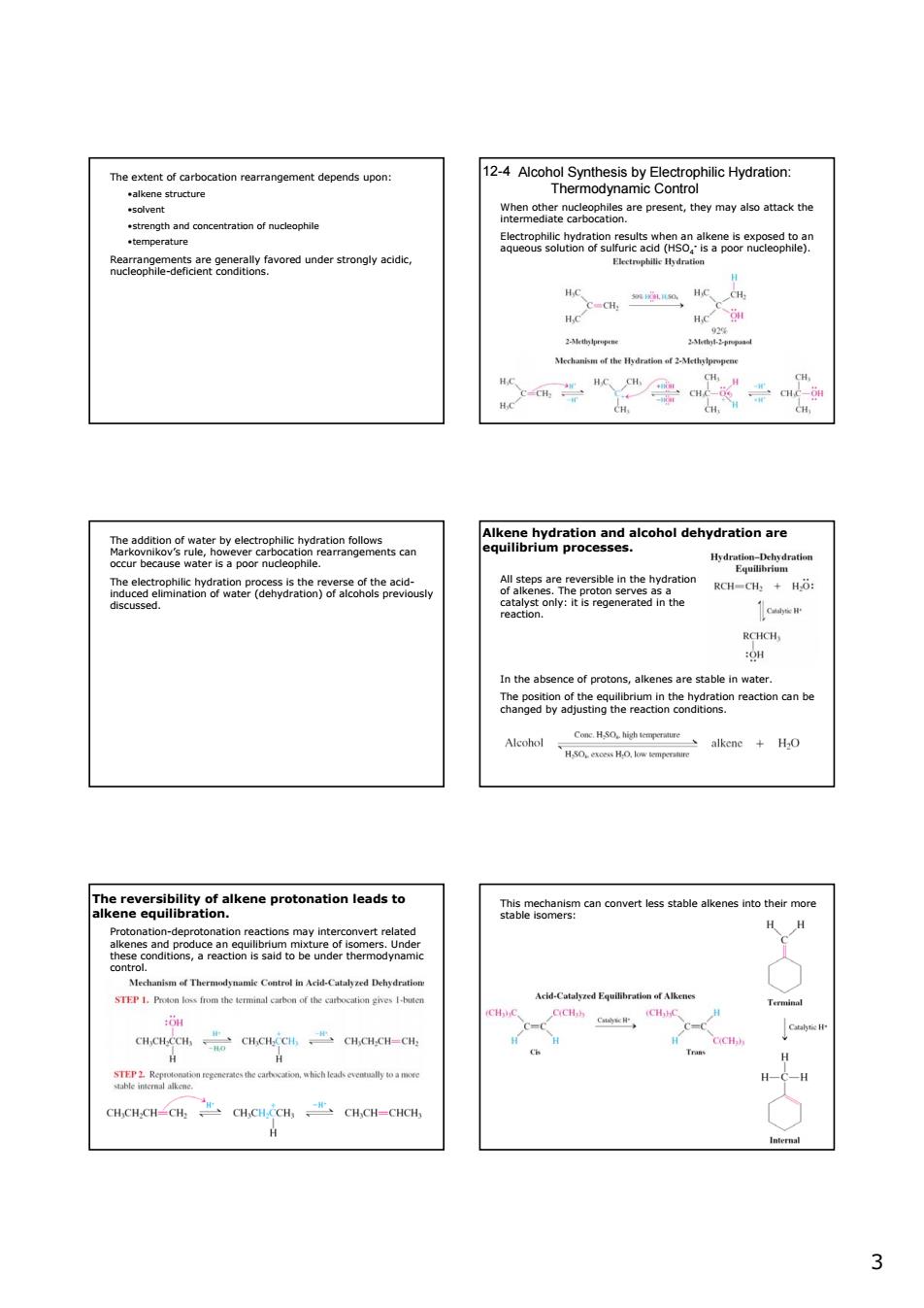正在加载图片...

Te xtefdepends upon: ored under s 6a20aeagoa 2 ÷“学÷ Ed0simSahwpscesneacoholdohytatone RCH-CH.+: In the absence of protons,alkenes are stable in water. hereveralkene protono eato h5negotasmcanconvetles kenes into thei H-C-H CHCHCH-CH.CHCHCH,CHCH-CHCH, 33 The extent of carbocation rearrangement depends upon: •alkene structure •solvent •strength and concentration of nucleophile •temperature Rearrangements are generally favored under strongly acidic, nucleophile-deficient conditions. Alcohol Synthesis by Electrophilic Hydration: Thermodynamic Control 12-4 When other nucleophiles are present, they may also attack the intermediate carbocation. Electrophilic hydration results when an alkene is exposed to an aqueous solution of sulfuric acid (HSO4 - is a poor nucleophile). The addition of water by electrophilic hydration follows Markovnikov’s rule, however carbocation rearrangements can occur because water is a poor nucleophile. The electrophilic hydration process is the reverse of the acidinduced elimination of water (dehydration) of alcohols previously discussed. Alkene hydration and alcohol dehydration are equilibrium processes. In the absence of protons, alkenes are stable in water. The position of the equilibrium in the hydration reaction can be changed by adjusting the reaction conditions. All steps are reversible in the hydration of alkenes. The proton serves as a catalyst only: it is regenerated in the reaction. The reversibility of alkene protonation leads to alkene equilibration. Protonation-deprotonation reactions may interconvert related alkenes and produce an equilibrium mixture of isomers. Under these conditions, a reaction is said to be under thermodynamic control. This mechanism can convert less stable alkenes into their more stable isomers: